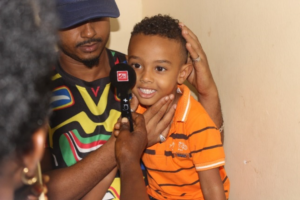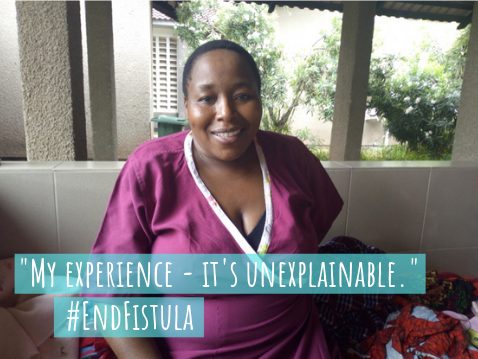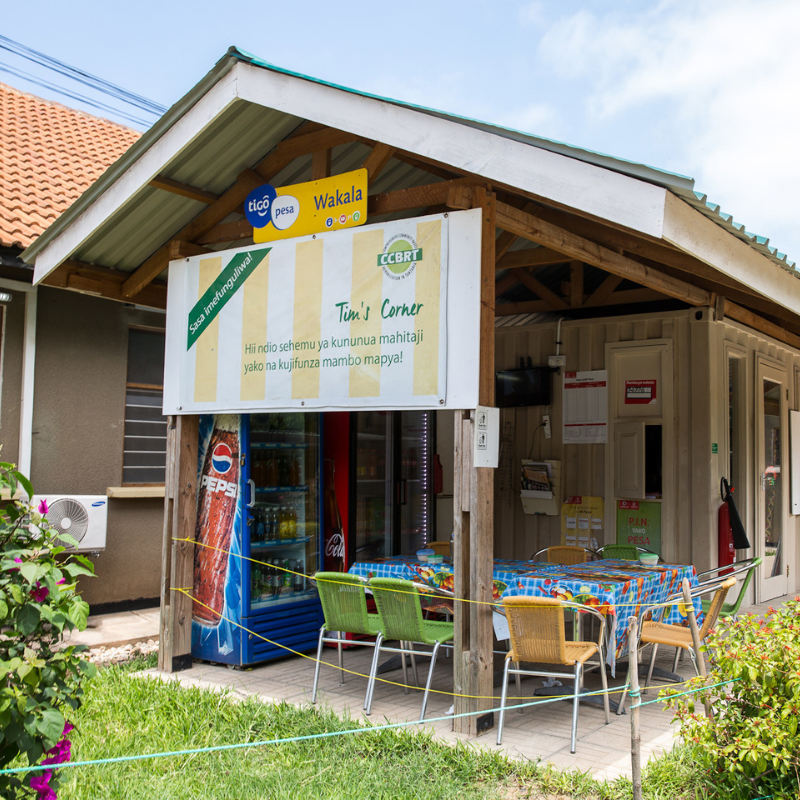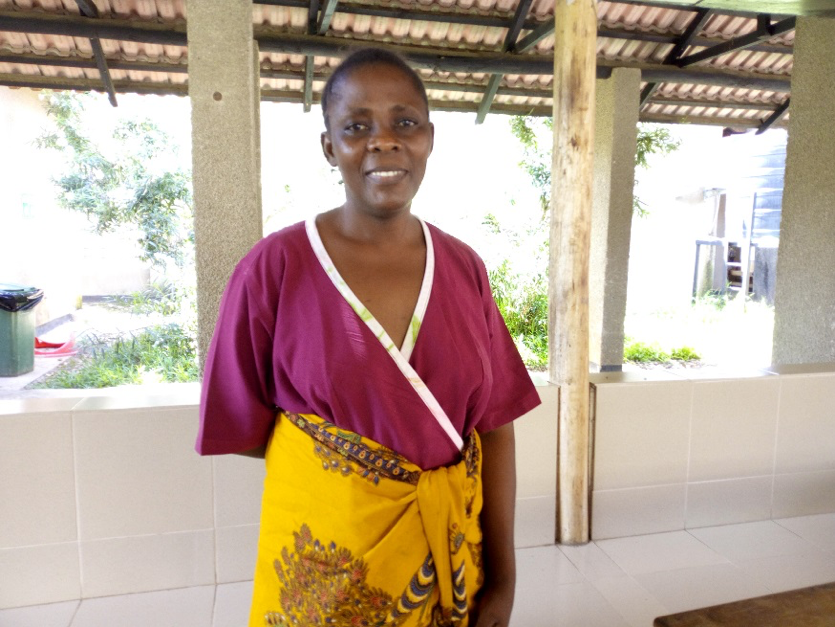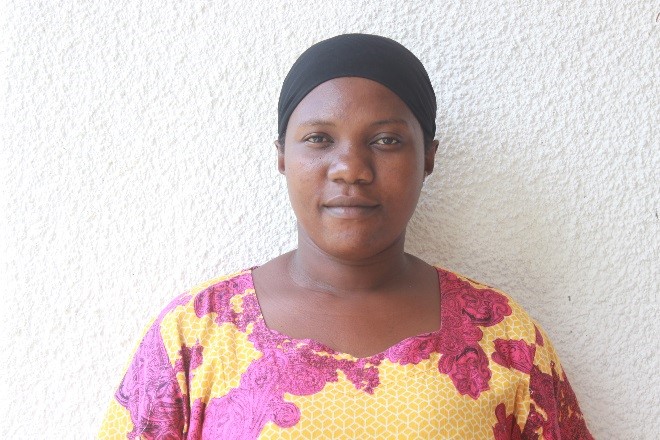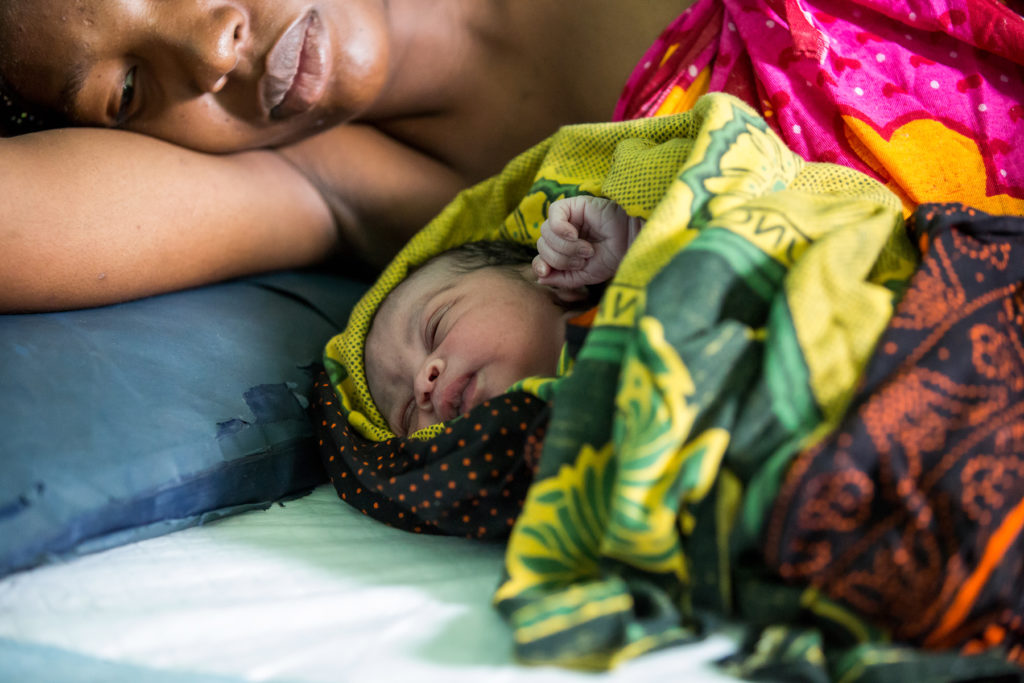This International Women’s Day, Meet Radhia
In celebration of International Women’s Day on March 8th, we want to celebrate the courage, perseverance, and strength of the women we serve in Tanzania, and the healthcare workers who support them.
Radhia first took her Mabinti Centre (‘Mabinti’) training course in 2012 and joined Mabinti as a full-time staff member in 2013. Her activities at Mabinti include cutting and measuring all of the fabric for bags and clothing and visiting the Kariakoo fabric market to barter for and purchase more fabric. Radhia is also the resident expert on making Binti dolls. Since 2013, Radhia has taught all new Mabinti trainees and staff members to make Binti dolls. Making the dolls is her favorite work task, and it is also what she believes she is best at.
Radhia developed obstetric fistula after giving birth to her first child. When she went into labor, her husband took her to the hospital where she labored for two days with no progression. Tragically, her baby died while she was at the hospital. Radhia’s husband left her immediately after she lost her baby. The doctors at the hospital recognized that Radhia had developed fistula during the prolonged labor, and referred her to CCBRT for treatment. At CCBRT, she underwent surgery and comprehensive treatment to repair her fistula. She was invited to join the Mabinti Centre training course shortly after she left CCBRT as a patient.
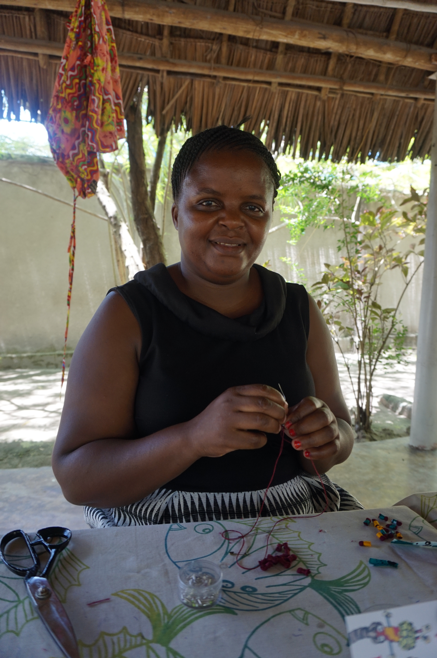
At the Mabinti Centre, Radhia completed the one-year training course, where she learned how to sew, make batik print, bead, and make clothing patterns. She also attended educational sessions on family planning and entrepreneurship. Radhia excelled in the training and was a great team member. After the course, she was invited to join Mabinti as a full-time employee. She was thrilled to be offered the job because she had never had a job before. Radhia especially enjoys her time at Mabinti because of the opportunity to spend time with other women who lived with fistula, the financial stability, and the opportunity for ongoing education and growth through frequent workshops on health, family planning and entrepreneurship.
In 2017, Radhia got pregnant again. As an employee at Mabinti, CCBRT’s expert OB/GYNs monitored her pregnancy closely to ensure that she received the proper care as a high-risk pregnancy after fistula. Dr. Brenda, head of the Maternal Health Capacity Building Program, personally monitored Radhia’s pregnancy, and recommended she give birth in Amana Hospital, one of the health centers in CCBRT’s Maternal Health Capacity Building Network. Radhia underwent a C-section, and safely gave birth to a healthy baby. She is incredibly grateful to CCBRT for treating her fistula in 2012, giving her employment at the Mabinti Centre, and providing expert support and care throughout her second pregnancy and childbirth. She never expected to be financially stable or to have a (now 3-year-old) child. Radhia encourages all women to reach out for help if they suspect they have fistula, and hopes that other women can find opportunities like she has at Mabinti.




